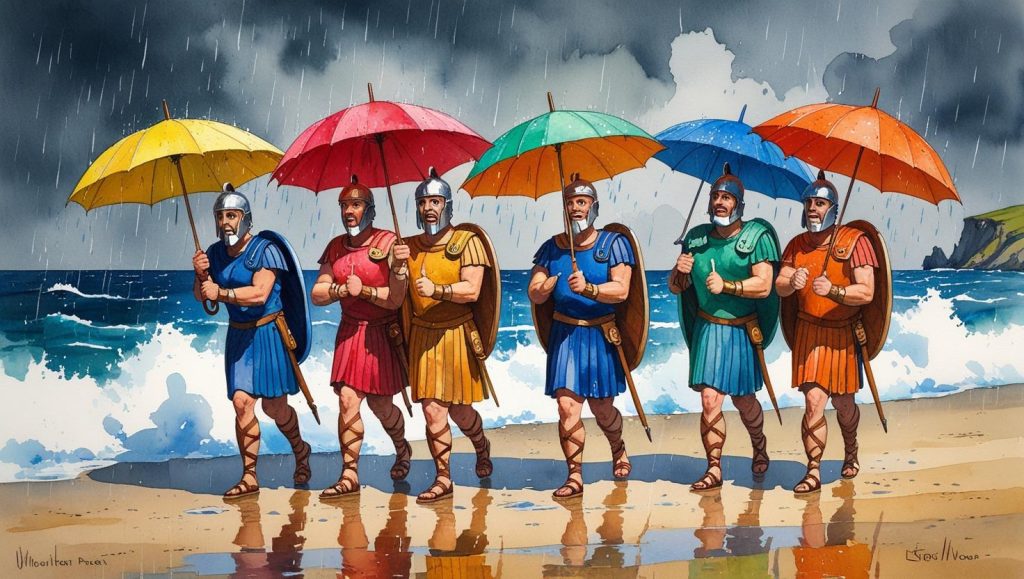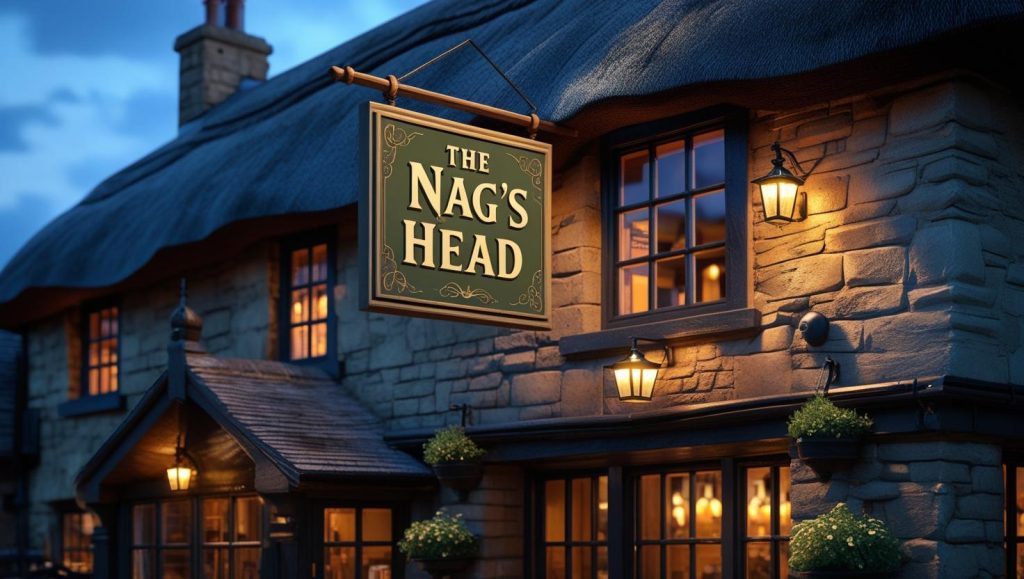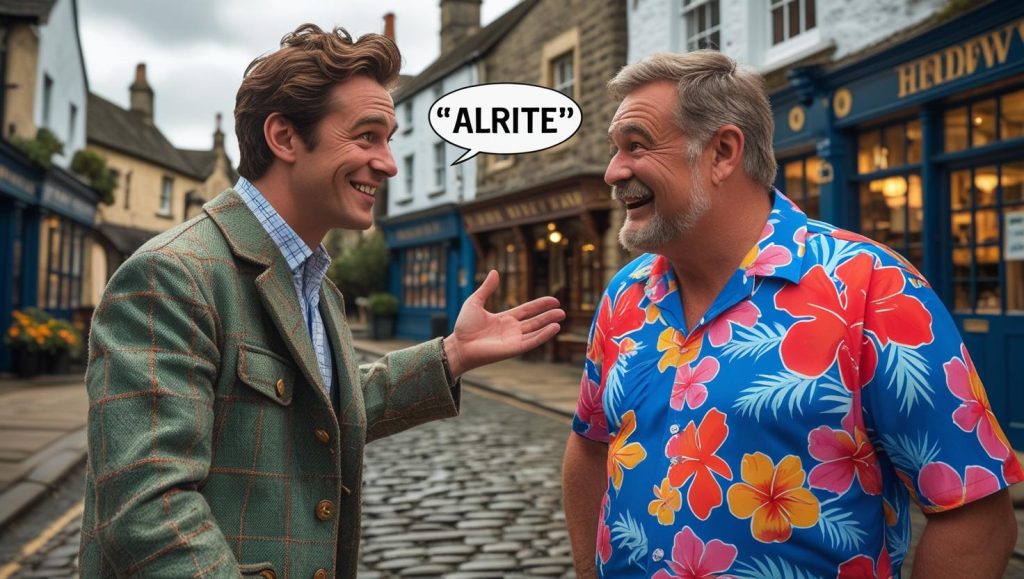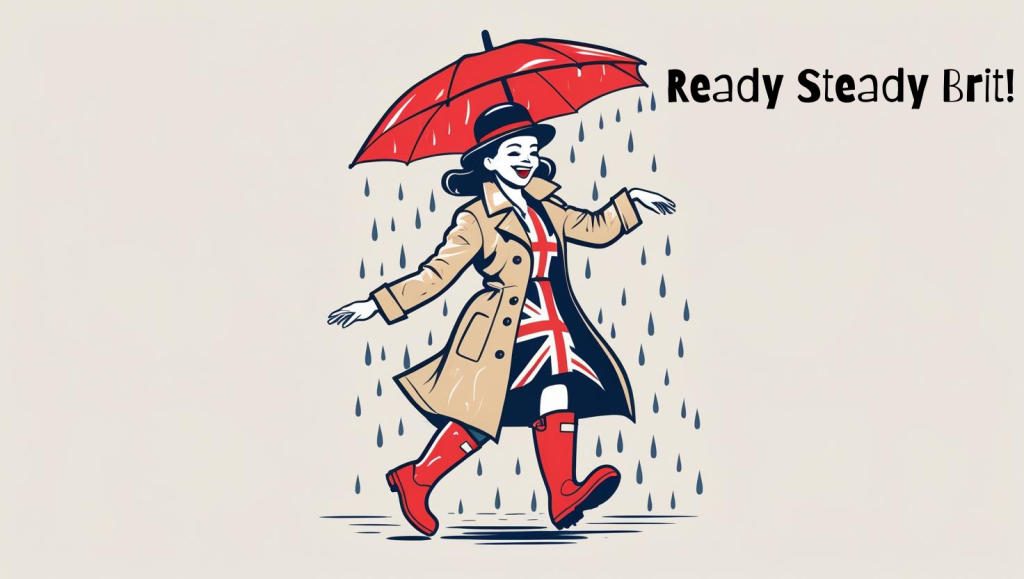From Romans to Roast Dinners – What Makes Britain, Well… Britain
Welcome to the United Kingdom, a land where the tea flows like water, the weather is best described as “damp with a chance of drizzle,” and history is lurking behind every crooked pub and dodgy roundabout. If you’re wondering what on earth makes the UK tick — or why everyone here is weirdly obsessed with the Tudors — buckle up. You’re about to embark on a whirlwind tour of British history and culture, with just the right amount of sarcasm to keep things civilised.

First Things First: Who Are the British, Anyway?
Let’s start with the basics. The United Kingdom is made up of four nations — England, Scotland, Wales, and Northern Ireland — each with its own proud history, dialects, and opinions on how a proper cup of tea should be made.
Collectively, they’re called “British,” though if you call a Scottish person English, you may want to back away slowly.
Ancient Britain: Druids, Romans, and Other People in Sandals
Before the Brits were drinking Earl Grey and watching Love Island, they were worshipping mysterious stone circles like Stonehenge, painting themselves blue (hello, Celts), and telling fortunes with animal guts. Then the Romans turned up in 43 AD and ruined everyone’s fun by introducing roads, straight lines, and underfloor heating.
The Romans stuck around for about 400 years, left some ruins and awkward Latin place names, and then cleared off when things got a bit too chilly.
The Medieval Mayhem: Castles, Plagues, and Royal Beheadings
After the Romans packed it in, the UK became a buffet for invaders. First came the Anglo-Saxons, then the Vikings, and finally the Normans, who showed up in 1066 and decided everyone needed a castle.
This was the era of chainmail, serfs, and monarchs named things like “Ethelred the Unready” (no, really). Life was hard, the food was worse, and if you survived the Black Death, you were practically royalty.
Tudor Drama: Divorce, Beheadings & Early Reality TV
Ah, the Tudors — where British history really leans into drama. You’ve got Henry VIII, who had six wives and an even larger ego. Then there’s Elizabeth I, who ruled like a boss and gave us the glorious defeat of the Spanish Armada.
This was also the golden age of Shakespeare, whose plays are now studied in schools while students pretend to understand them.
Fun fact: Brits still name pubs after random Tudor things like “The King’s Head” or “The Beheaded Wench.”

Empire & Industry: “We’re Not Saying It Was Right, But It Was Busy”
Fast forward to the 18th and 19th centuries, when Britain started collecting countries like it was building a Pokémon deck. Welcome to the British Empire, where red coats, stiff upper lips, and questionable colonial decisions ruled the day.
This era saw the Industrial Revolution, when everything got louder, smokier, and faster. Trains were invented, children worked in factories, and tea officially became the national fuel source.
Yes, this period made Britain rich. No, it wasn’t always pretty.
Modern Britain: War, Pop, and the Great British Identity Crisis
The 20th century was all go. Two World Wars, a royal abdication scandal, the Beatles, The Queen, the NHS, and something called Brexit.
Post-war Britain saw rationing, council housing, and the slow but glorious arrival of multiculturalism, curry houses, and reggae sound systems.
Then came the Swinging Sixties, followed by the Grumpy Seventies, the Loud Eighties, and the Confused Nineties.
Today, British culture is a patchwork quilt of tradition, rebellion, politeness, sarcasm, sarcasm about politeness, and more sarcasm.
Core Ingredients of British Culture
Still wondering what defines British culture? Here’s a handy starter pack:
🍵 1. Tea
Not just a drink — a religion. Brits drink 100 million cups of tea a day. It solves everything from heartbreak to awkward silences. Want to get on a Brit’s good side? Offer them a brew. Want to annoy them? Put the milk in first. (Don’t do that.)
2. Sarcasm & Understatement
British people are emotionally repressed, but gloriously witty. When a Brit says “Not bad”, they usually mean “absolutely fantastic.” When they say “That’s… interesting,” it probably isn’t.
Mastering sarcasm is key to surviving here.

☔ 3. The Weather
It’s not good. But talking about it is a national sport. Expect 15 conversations a week about whether it’s raining, about to rain, or used to rain.
4. Queues
Brits love queuing. It’s sacred. Push in, and you might trigger a national incident.
5. Class Consciousness
Despite pretending not to care, the UK is obsessed with class. Whether you’re posh, middle-class, or working-class (or aspiring middle-class), it affects everything from your accent to what biscuit you dunk in your tea.
Modern Traditions & Cultural Quirks
- Sunday Roast: More than a meal — it’s a weekly ritual, best enjoyed with Yorkshire puddings, gravy, and family arguments.
- Pantomimes: Bizarre Christmas shows involving drag, audience heckling, and shouting “He’s behind you!”
- Apologising Constantly: Brits will say sorry even if you walk into them.
- Pub Culture: The local pub is part community centre, part therapy room, part historic monument.
So, What Is Britishness?
Truthfully? It’s a bit of everything. It’s quirky and self-deprecating. It’s scones and grime music, curry and cricket, sarcasm and solidarity.
Britishness is changing all the time — it’s more multicultural, more diverse, and more complicated than ever. And that’s a good thing.
But at its heart, it’s still about moaning about the weather, refusing to take compliments, and knowing that the best cure for anything is a cuppa and a biscuit.
Final Thoughts From the Land of Slightly Awkward Greatness
If you’re new here, welcome. If you’ve lived here all your life and still don’t understand it — same. Britain is weird, funny, maddening, and wonderful.
So stick around, brush up on your slang, perfect your queueing posture, and let Ready Steady Brit be your unofficial tour guide to this island of delightful oddballs.
And remember: when in doubt, just say “sorry” and offer a biscuit.
